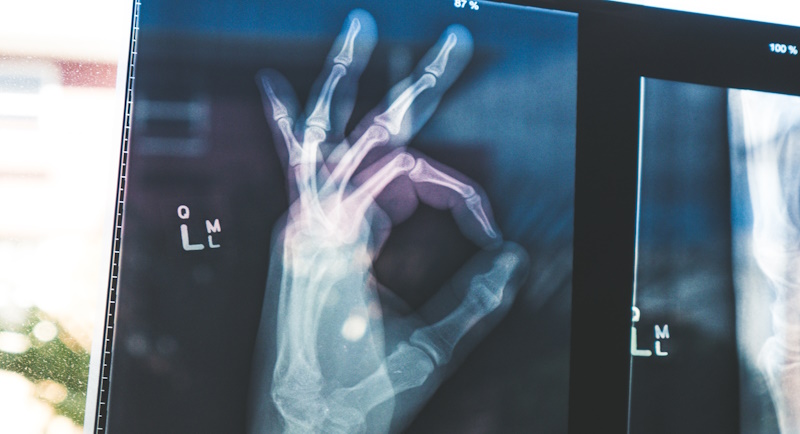Maintaining optimal bone health during prostate cancer when taking ADT
Men with advanced prostate cancer that has spread to the bones are at risk for osteoporosis, the brittle bones disease that can result in life-altering fractures. These same men who are also on androgen deprivation therapy (ADT), for thinning bones as this medication lowers the hormone estrogen, necessary for keeping bones strong.
ADT affect on bone health in men with advanced prostate cancer
Prostate cancer is a cancer that affects thousands of men every year. This cancer is fueled by androgens, particularly testosterone, and androgen deprivation therapy is a treatment that reduces testosterone levels by inhibiting its production in the testes and adrenal glands. There are several types of medications available for ADT treatment, such as Luteinizing hormone-releasing hormone (LHRH) analogues (Lupron), Luteinizing hormone-releasing hormone (LHRH) antagonists (Firmagon), and Antiandrogens (Xtandi, Erleada and Nubeqa).
ADT can be used temporarily, intermittently or continuously for both localized and advanced prostate cancer and is usually combined with radiation therapy. It is not the only form of prostate cancer treatment, but it is commonly used depending on specific criteria. ADT may also be used for biochemical recurrence prostate cancer and advanced prostate cancer.
ADT treats advanced prostate cancer by lowering testosterone levels to prevent cancer growth. However, testosterone is vital for maintaining bone health. When testosterone levels drop, it puts bone health at risk. Men undergoing androgen deprivation therapy (ADT) are at risk of developing osteopenia, osteoporosis, bone fractures, and breaks, which is especially problematic for older patients due to age-related decrease in bone density.
Maintaining bone health when taking ADT
Taking care of your bones during Androgen Deprivation Therapy is crucial. Here are some tips to help you maintain good bone health:
- Make sure to get enough calcium and vitamin D in your diet. Foods like dairy products, leafy greens, and fortified cereals are good sources of these nutrients.
- Physicians should manage supplement dosages. Providers may prescribe Prolia, Fosamax, or Zometa for bone health. Consider calcium and vitamin D3 supplements.
- Stay active and exercise regularly. Weight-bearing exercises like walking, jogging, and weight lifting can help keep your bones strong. Also, fast movements such as racquetball, basketball, and soccer are ideal for strong bones in the lower torso.
- Talk to your doctor about bone density tests and medications that can help prevent bone loss and fractures.
- If you smoke, stop and also reduce alcohol intake. Smoking affects the absorption of calcium which can lead to reduced bone density and weak bones. The nicotine in cigarettes also slows production of crucial bone-forming cells necessary to healing. Consuming alcohol is also discouraged as it reduces bone formation and increases bone breakdown.
Following these tips can help ensure that your bones stay healthy and strong during androgen deprivation therapy.
Bone imaging for monitoring bone health
Healthcare providers need to monitor the bone health of patients undergoing ADT which can deplete testosterone levels. One way to do this is through a bone density test.
A bone density test is an advanced diagnostic tool that utilizes x-ray imaging to accurately measure the density of minerals in bones and check for the presence of osteopenia or osteoporosis. When bones are strong and dense, the risk of fractures or breaks is significantly reduced. The results of a bone density scan are vital in determining the most suitable bone treatment options, if required.
Prostate cancer is serious but can be treated effectively with numerous proven treatment options. While the primary focus is eradicating or managing the disease, it’s equally important to closely monitor the impact of the treatment or disease progression on bone health. Men on Androgen Deprivation Therapy must prioritize and discuss bone health with their doctors. It’s strongly advised that men have regular prostate cancer screenings after age 40.
Dr. David Samadi is the Director of Men’s Health and Urologic Oncology at St. Francis Hospital in Long Island. He’s a renowned and highly successful board certified Urologic Oncologist Expert and Robotic Surgeon in New York City, regarded as one of the leading prostate surgeons in the U.S., with a vast expertise in prostate cancer treatment and Robotic-Assisted Laparoscopic Prostatectomy. Dr. Samadi is a medical contributor to NewsMax TV and is also the author of The Ultimate MANual, Dr. Samadi’s Guide to Men’s Health and Wellness, available online both on Amazon and Barnes & Noble. Visit Dr. Samadi’s websites at robotic oncology and prostate cancer 911.

